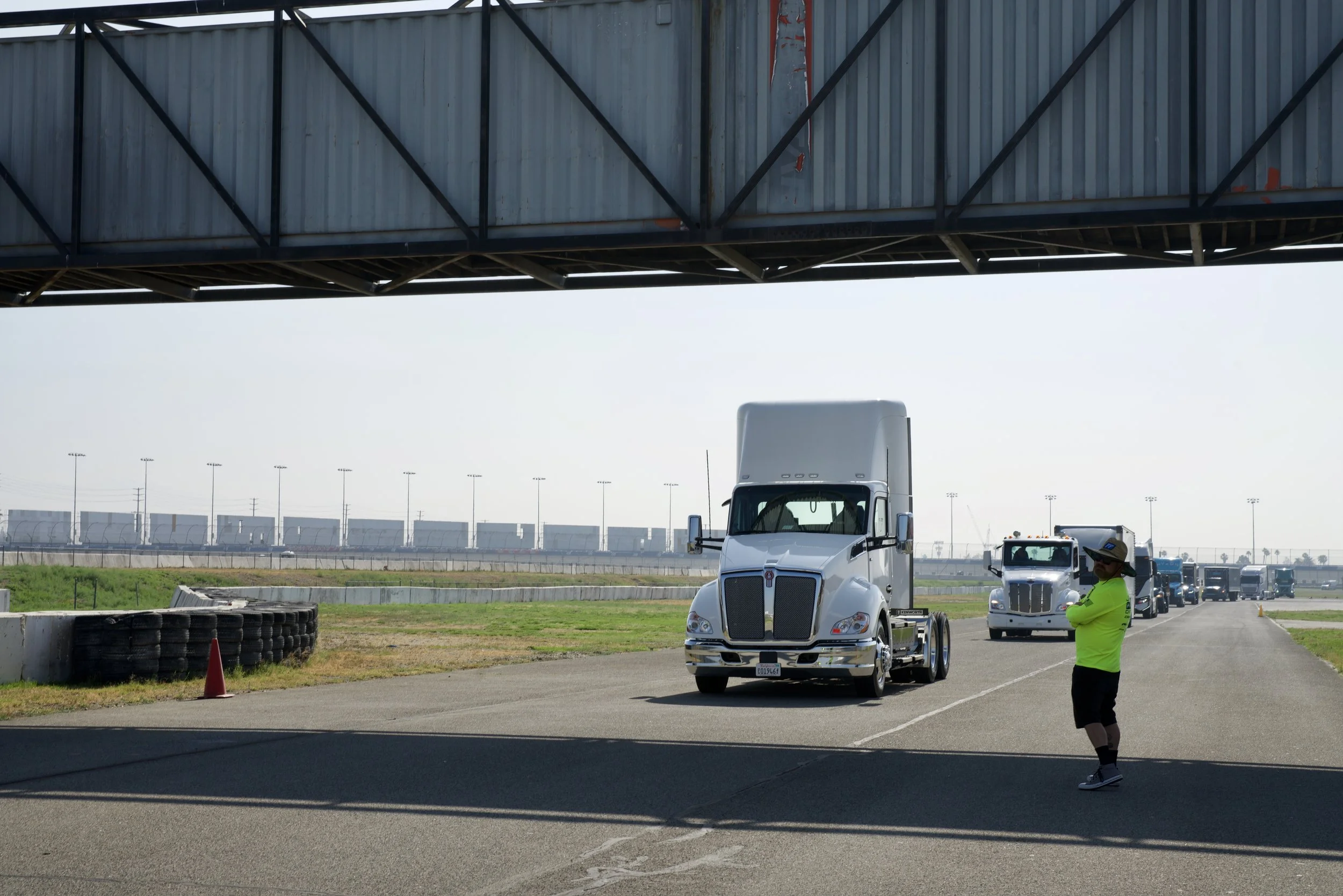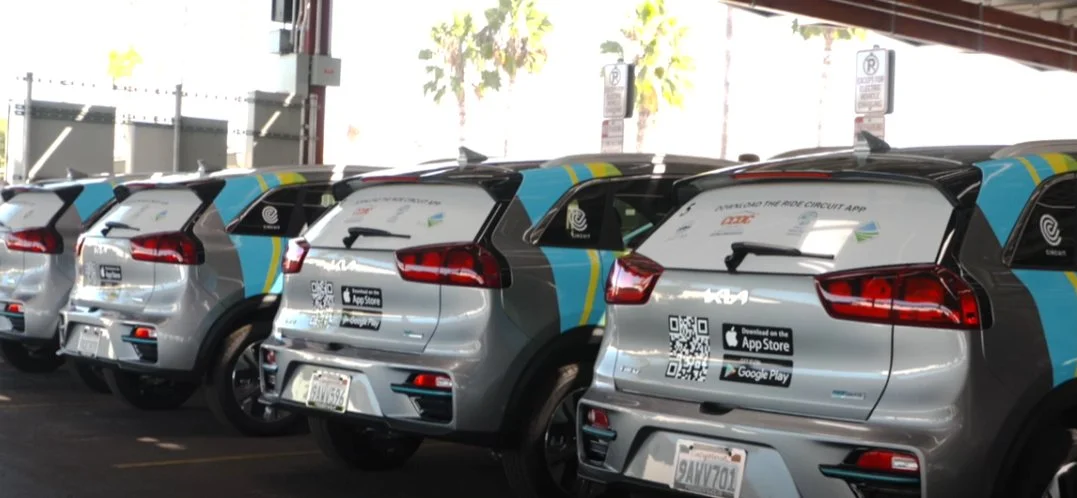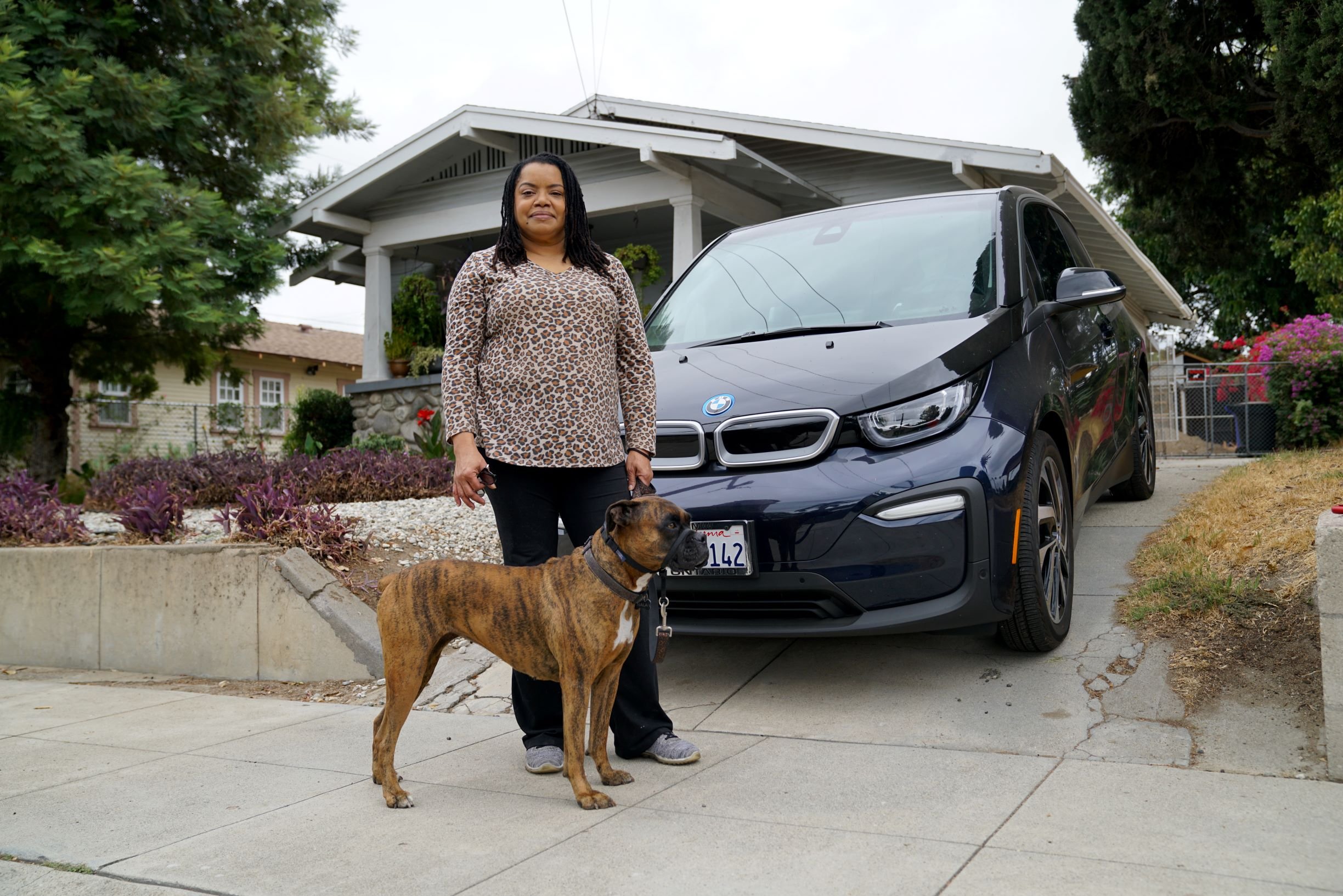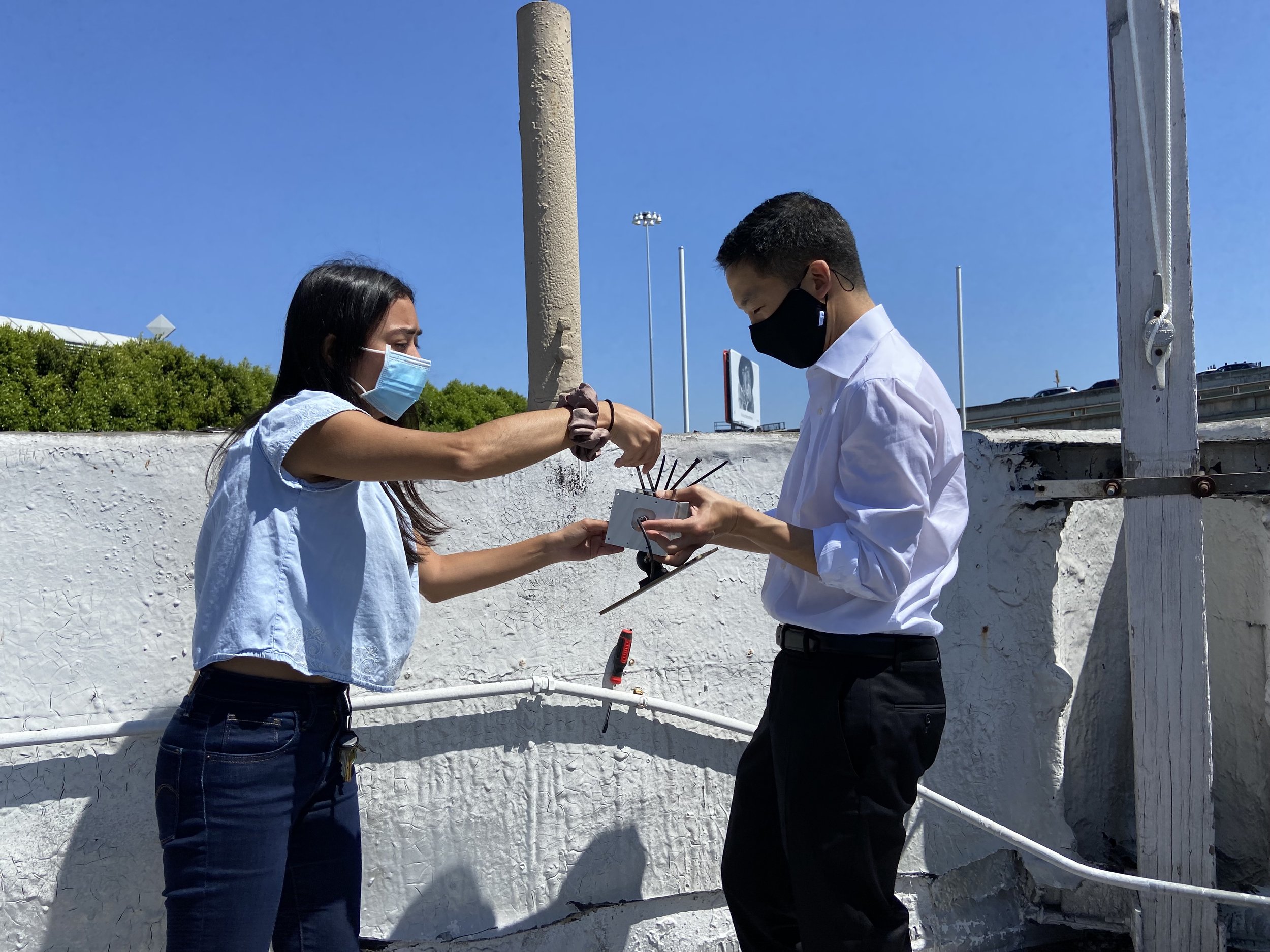A Clean Ride to School: School Districts Go 100% Zero-Emission
California Air Resources Board
California Climate Investments funding has supported the deployment of over 1,100 zero-emission school buses at over 300 public school districts and local education agencies across the state. In both rural and urban communities across California, school districts are operating more zero-emission fleets, supporting the health and safety of students and reducing fleet operating costs.
Supporting the Adoption of ZEVs with a Free Technical Assistance Program
California Air Resources Board
In August 2023, the California Air Resources Board (CARB) and transportation nonprofit CALSTART launched Cal Fleet Advisor, which offers free technical assistance to help owners and operators integrate more zero-emission medium- and heavy-duty vehicles into their fleets. The program, which receives California Climate Investments funding as part of the administration of the Clean Truck and Bus Voucher Incentive Project (HVIP), provides helpful services to ease the transition to cleaner technology for fleets across the state.
Port of Los Angeles Reduces Emissions with CORE Incentives
California Air Resources Board
The Port of Los Angeles (POLA) has taken a significant step toward a greener future with the deployment of five brand-new Taylor ZLC 996 Electric Top Handlers. Supported by $2.5 million in California Climate Investments funding through the Clean Off-Road Equipment Voucher Incentive Project (CORE), this initiative marks a milestone in reducing greenhouse gas emissions and improving air quality in and around California ports.
San Joaquin Valley Community Air Monitoring Network Expands Access to Air Quality Data
Zero-Emission Tractor Demonstration Projects in the Bay Area
California Air Resources Board
Thanks to funding from California Air Resources Board’s FARMER program, the Bay Area Air Quality Management District (BAAQMD) is funding some of the first zero‑emission agricultural tractor demonstration projects in the state. BAAQMD and CARB recently awarded $1 million to manufacturers to produce seven zero‑emission tractors which are now in operation at The Mushroom Farm LLC, Old School Vineyards LP, Arroyo Lindo Vineyards, Crocker Estate, and Wente Vineyards.
Rancho San Pedro Launches Good2Go Bikes Program
California Air Resources Board
With nearly $1 million in funds from the California Climate Investments Clean Mobility Options Voucher Pilot Program, the Los Angeles Cleantech Incubator, Housing Authority of the City of Los Angeles, and Pedal Movement are launching four e-bike hubs through Rancho San Pedro affordable housing’s shared ebike program, also known as the Good2Go Bikes program.
Omnitrans ConnecTransit Plan: Planning Public Transit in the San Bernardino Valley
California Air Resources Board
Omnitrans is working with several partners to develop a community-driven transportation plan for the public transportation system in the San Bernardino Valley. Omnitrans is the public transportation provider for the San Bernardino Valley region. The ConnecTransit Plan will identify and prioritize clean transportation improvements that address hurdles to equity and access within the Omnitrans service area and that will reduce greenhouse gas emissions. The ConnecTransit Plan will provide a blueprint for future implementation projects for which Omnitrans will seek grant funds.
Zero-Emission Transit Vehicles, New Bike Lanes, and Shade Trees In Commerce
California Air Resources Board
Thanks to over $3 million from the Sustainable Transportation Equity Project, the City of Commerce has partnered with Climate Resolve and TreePeople to provide more clean transportation options to the city’s residents. Situated in southeast Los Angeles County in an area known for its commercial and industrial operations, Commerce has a history of providing free and reliable public transit service to its residents.
City of Chula Vista Launches New On-Demand Community Shuttle
Community-focused outreach project, Access Clean CA, helped resident in underserved community afford electric vehicle and solar panels.
Fuel Cell Electric Trucks Reduce Air Pollution Throughout the Central Valley
California Air Resources Board
Thanks to $12 million from the Advanced Technology Demonstration and Pilot Projects and $29 million in match funding from multiple project partners, the NorCAL Zero-Emission Regional and Drayage Operations with Fuel Cell Electric Trucks (NorCAL Zero) Project will support the largest commercial deployment of Class 8 hydrogen-powered fuel cell trucks in the country. These zero-emission trucks will improve the air quality of communities between Oakland and Bakersfield by displacing diesel-fueled trucks that emit harmful air pollutants.
Woodstove Replacements Heat Homes in Butte County
More than 54 Butte County households have replaced their old woodstove or stove insert with a new, cleaner alternative that heats their home, improves indoor air quality, and reduces emissions of greenhouse gases, harmful particulates, and black carbon, a particularly potent climate pollutant, thanks to vouchers provided by the Woodsmoke Reduction Program. Among the residents who have benefitted from the program are Dennis and Deb, who replaced their 1979 woodstove insert, and Riki, who replaced the woodstove that came with their farmhouse, built before 1900.
A Multi-Faceted Approach to Addressing Community-Identified Transportation Needs
The Sustainable Transportation Equity Project (STEP) is designed to increase transportation equity in disadvantaged and low-income communities by funding planning and clean transportation projects and directly engaging community residents in clean transportation solutions. STEP achieves this via two grant types: Implementation Grants and Planning and Capacity Building Grants. Paid for by Cap-and-Trade dollars, the grants ultimately will help people get where they need to go — be it the doctor’s office or daycare — without using a personal vehicle.
Demonstrating Emissions-Reducing Solutions for the Freight Sector
The San Joaquin Valley Flexible Solutions for Freight Facilities project, supported with $22.6 million in funding from the Zero-and Near Zero-Emission Freight Facilities Project along with $22.6 million in matched funds from project partners, demonstrated advanced technologies on locomotives and hybrid and zero-emission equipment around rail yards. For one part of this multi-component project, the Wabtec Corporation designed, manufactured, and commissioned a battery-electric locomotive to operate in tandem with two diesel locomotives from BNSF Railway, operating like a hybrid vehicle.
Cleaner Passenger Trains through the Capitol Corridor Rail Project
In 2019, the Capitol Corridor Joint Powers Authority, in partnership with California Department of Transportation’s Division of Mass Transit, was selected by the Bay Area Air Quality Management District to receive $7.4 million from the Community Air Protection program to help replace two diesel-powered locomotives with two new Siemens Charger Tier 4 locomotives. These locomotives are now operating on the Capitol Corridor line from Auburn-Sacramento to Silicon Valley and run through disadvantaged and low-income communities in San Francisco, Oakland, Berkeley, and more. The new locomotives achieve a 90 percent reduction in particulate matter emissions and an 80 percent reduction in oxides of nitrogen emissions compared to the old, higher-polluting locomotives.
Collecting Air Quality Data to Improve Community Health in Eastern San Francisco
Brightline Defense, an environmental justice nonprofit organization, was awarded $300,000 from the Community Air Grants program to support the Brightline Air Quality Monitoring Program. This community-driven program that will install, collect, and analyze data from 15 stationary air quality sensors in heavily populated, low-income communities throughout Eastern San Francisco. The data these sensors collect are publicly available and can be used to help shape programs and policies to create cleaner air in these communities.
Zero-Emission Forklifts Bring Air Pollution Reductions to Portside Communities
SSA Marine received $4.82 million from the Clean Off-Road Equipment Voucher Incentive Project, also known as CORE, to purchase 20 zero-emission forklifts and charging infrastructure for their locations in Stockton and West Sacramento. This equipment will help reduce greenhouse gases and air pollutants in census tracts that are heavily burdened by diesel particulate matter and other air pollutants.
Big Pine Paiute Tribe of the Owens Valley Community Transportation Needs Assessment
Using funds awarded by the Clean Mobility Options program, the Big Pine Paiute Tribe of the Owens Valley, a federally recognized California Native American Tribe, conducted a community-driven transportation needs assessment to determine the transportation needs and preferences of Big Pine Paiute’s residents. After the needs assessment is completed and approved by their Tribal Council, the Big Pine Paiute Tribe can use it to apply for additional funding from Clean Mobility Options or other transportation grant programs to implement clean mobility projects.
Next-generation Refrigeration in New Stater Bros. Markets Grocery Store
Thanks to $50,000 from the California Air Resources Board’s Fluorinated Gas Reduction Incentive Program, Stater Bros. Markets installed a climate-friendly refrigeration system at a new supermarket in Whittier that will result in a reduction of greenhouse gas emissions that is the equivalent to taking more than 1,000 vehicles off the road for one year. Since refrigerants are among the fastest growing climate pollutants worldwide it is important to have projects like this one to demonstrate that transitioning the grocery sector toward cleaner refrigerants is an effective strategy for mitigating climate change.





















